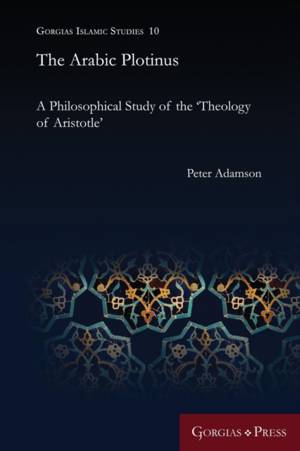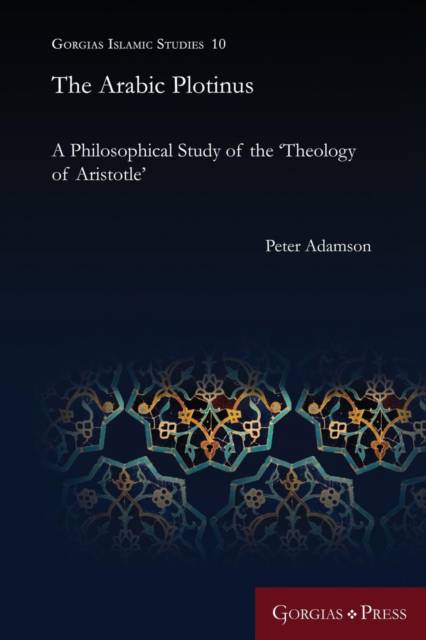
- Retrait gratuit dans votre magasin Club
- 7.000.000 titres dans notre catalogue
- Payer en toute sécurité
- Toujours un magasin près de chez vous
- Retrait gratuit dans votre magasin Club
- 7.000.0000 titres dans notre catalogue
- Payer en toute sécurité
- Toujours un magasin près de chez vous
Description
The so-called "Theology of Aristotle" is a translation of the Enneads of Plotinus, the most important representative of late ancient Platonism. It was produced in the 9th century CE within the circle of al-Kindī, one of the most important groups for the early reception of Greek thought in Arabic. In part because the "Theology" was erroneously transmitted under Aristotle's authorship, it became the single most important conduit by which Neoplatonism reached the Islamic world. It is referred to by such thinkers as al-Fārābī, in an attempt to demonstrate the agreement between Platonism and Aristotelianism, Avicenna, who wrote a set of comments on the text, and later on thinkers of Safavid Persia including Mullā Ṣadrā.
Yet the "Theology" is not just a translation. It may in fact more accurately be described as a creative paraphrase, which takes frequent liberties with the source text and even includes whole paragraphs' worth of new material. Adamson's book offers a philosophical interpretation of the changes introduced in the Arabic version. It is argued that these changes were in part intended to show the relevance of Plotinus' thought for contemporary Islamic culture, for instance by connecting the Neoplatonist theory of the First Principle to theological disputes within Islam over the status of God's attributes. At the same time the paraphrase reflects a tendency to harmonize the various strands of Greek thought, so that a critique by Plotinus of Aristotle's theory of the soul is subtly changed into a defense of Aristotle's theory against a possible misinterpretation. The upshot, or so Adamson argues, is that the "Theology" needs to be read as an original philosophical work in its own right, and understood within the context of the ʿAbbāsid era.
Spécifications
Parties prenantes
- Auteur(s) :
- Editeur:
Contenu
- Nombre de pages :
- 260
- Langue:
- Anglais
- Collection :
- Tome:
- n° 10
Caractéristiques
- EAN:
- 9781463207182
- Date de parution :
- 27-12-17
- Format:
- Livre broché
- Format numérique:
- Trade paperback (VS)
- Dimensions :
- 152 mm x 229 mm
- Poids :
- 353 g

Les avis
Nous publions uniquement les avis qui respectent les conditions requises. Consultez nos conditions pour les avis.






